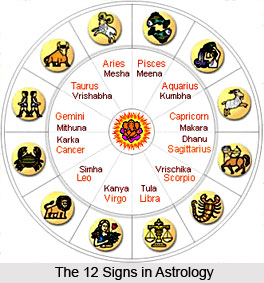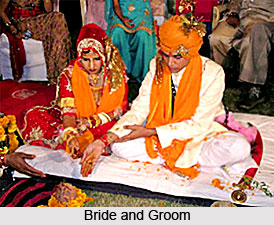 One of the Adhyayas of Agni Purana has described in detail the importance of giving gifts. It has been said that by making the different sorts of gifts, such as the Ishta, Purta, etc., the giver becomes entitled to all sorts of bliss. The endowments of tanks, wells, divine edifices, gratuitous feeding houses, gardens of fruits, and caravansaries are known as the Purtas, and their endowers enjoy an immunity from the cycles of re-births. The performance of an Agnihotra sacrifice, practice of austerities, truthfulness, conformity to the rules of life laid down in the Vedas, hospitality and the offering of oblations known as the Vishvadevapindas, are known as the Ishta acts, which lead their respective performers or practitioners to heaven. The Agni Purana also says that similarly gifts made on the occasions of the eclipses of the planets, on the passing of the sun to a new zodiacal sign, or on the day of the twelfth phase of the moon`s wane or increase, are also known as the Purta acts.
One of the Adhyayas of Agni Purana has described in detail the importance of giving gifts. It has been said that by making the different sorts of gifts, such as the Ishta, Purta, etc., the giver becomes entitled to all sorts of bliss. The endowments of tanks, wells, divine edifices, gratuitous feeding houses, gardens of fruits, and caravansaries are known as the Purtas, and their endowers enjoy an immunity from the cycles of re-births. The performance of an Agnihotra sacrifice, practice of austerities, truthfulness, conformity to the rules of life laid down in the Vedas, hospitality and the offering of oblations known as the Vishvadevapindas, are known as the Ishta acts, which lead their respective performers or practitioners to heaven. The Agni Purana also says that similarly gifts made on the occasions of the eclipses of the planets, on the passing of the sun to a new zodiacal sign, or on the day of the twelfth phase of the moon`s wane or increase, are also known as the Purta acts.
It has been narrated in the Agni Purana that the merit of a gift, made with a due regard to the status of its recipient, or to the nature of the time and place of its making, is increased million times, such occasions being the appearance of the san on the tropics, the passing of that luminary over the points of equinox (Vishuba), the astral condition known as the Vyatipata, the waning of the duration of days, the days of the commencement of the different cycles of time (Yugas), the passing over of the sun to a new sign of the zodiac; the days of the fourteenth phase of the moon`s wane or increase, the days of full moon, the days of the eighth or the twelfth phase of the moon`s wane or increase, the celebration of marriages or sacrificial ceremonies, the clays marked by the astral condition known as the Vaidhriti Yoga or the occasion of having had an evil dream in the night.
Agni Purana also states that auspices of the sun`s appearance on the tropics of cancer or Capricorn, or on the occasion of the` passing of that luminary over the two equinox points respectively, carries four or eight times the merit of making gifts on any other occasion. Again a gift made on the occasions of the four Vishnupadis, twelve Sankrantis, the entrance of the sun into the signs of Virgo, Gemini, Pisces and Sagittarius respectively, carries sixteen times the merit of an ordinary-gift. A Sunday marked by the asterism Shravana, Ashvini,-Dhanistha, Ardra, etc, gives rise to the astral condition` known as the Vyatipata Yoga. The only gifts which are forbidden at those places, being the impartment of knowledge and the giving` away of one`s daughter in marriage. The giver should look towards the east while making the gift, while the recipient should face the north at the time of receiving it. The giver should mention the names of his Gotra as well as that of the receiver and the names of their fathers, grandfathers and great grandfathers respectively.
The Agni Purana has also narrated the procedure which should be followed even at the time of giving away a girl in marriage. It has been said that the giver shall bathe before giving away a girl in marriage, and worship the bridegroom, with the Gayatri Mantra before actually making over the bride to him and then formally join their hands by holding water in the hollow of his right palm. Horses, gold, sessamum, orientate, elephants, slave-girls, cars, houses, reddish cows, as well as the articles which constitute the ten great gifts, may be given to the bridegroom with the bride.
 The Fire God in the great Purana says that a Brahmana should accept only the gifts made by a Brahmana, a Kshatriya, and a Vaishya, and out of compassion only, a gift made by a Sudra. Gifts of cows, maidens and houses should not be made to many. A man by withholding a gift promised to his gods, parents, and preceptors in special, bars the salvation of his seven generations of relations. A man should make over to his fallen and degraded fellow beings, the merit which he has assiduously acquired by many acts of painful piety, while a gift made with a view to have something in return, is invalid and degrading. It is the spirit of sincerity and sympathy that forms the backbone of virtue, and even a small cup of water presented to the perched lips of a thirsty man, out of a heartfelt sympathy, brings immortal merit to the offered. A man of knowledge, character and piety, who is above giving any pain to any creature, is the true receptacle (Patra) of a gift, as it is he alone that protects and saves the ignorant from the evils of life. A gift made by a man to his own mother is hundred times more meritorious than a gift made to an outsider, while the one made to one`s father carries thousand times more merit than the latter.
The Fire God in the great Purana says that a Brahmana should accept only the gifts made by a Brahmana, a Kshatriya, and a Vaishya, and out of compassion only, a gift made by a Sudra. Gifts of cows, maidens and houses should not be made to many. A man by withholding a gift promised to his gods, parents, and preceptors in special, bars the salvation of his seven generations of relations. A man should make over to his fallen and degraded fellow beings, the merit which he has assiduously acquired by many acts of painful piety, while a gift made with a view to have something in return, is invalid and degrading. It is the spirit of sincerity and sympathy that forms the backbone of virtue, and even a small cup of water presented to the perched lips of a thirsty man, out of a heartfelt sympathy, brings immortal merit to the offered. A man of knowledge, character and piety, who is above giving any pain to any creature, is the true receptacle (Patra) of a gift, as it is he alone that protects and saves the ignorant from the evils of life. A gift made by a man to his own mother is hundred times more meritorious than a gift made to an outsider, while the one made to one`s father carries thousand times more merit than the latter.
Similarly a gift made by a man to his own daughter, brings him merit which lasts for the eternal time, while the one made to his own brother bears immortal fruits. Kindness is the gift that should be made to creatures other than man, while the virtue of equal treatment should be extended even to the fallen and the sinful. A gift made to a man of hybrid origin and gifts made to a Vaishya, a Kshatriya or to a Brahmana, are respectively four, eight and sixteen times more meritorious than an ordinary gift. A gift made to a reader of the Vedas is hundred times more meritorious than one of the latter class, while infinite merit is acquired by making a gift to a Brahmana who teaches or writes commentaries on the holy Vedas. A gift made to one`s own priest or to a Brahmana whose profession is to officiate as a priest at sacrifices undertaken by others, bears immortal fruits like the one made to a man of indigent circumstances or like the one made on the occasion of a sacrifice.
Similarly a gift made to a Brahmana who does not practise penances and austerities and lives by begging only, tends to lower the status of the giver in the next existence. The giver is drowned by such a gift in the abyss of perdition, as a swimmer is drowned by the weight of the stone tied round his neck. The taker should bathe and hold water in the cup of his hand before taking the gift, and the giver should recite the Savitri Mantra at the time of making it over to him and mention the names of the article of the gift and of the god to whom it is held sacred. The taker having taken a gift from a noble Brahmana should loudly pronounce the names of the gift and its tutelary god as well as his benediction and protection of the gods, utter them in a small voice in the case of a Kshatriya, whisper them into the ears of a Vaishya gift-maker, and recite them mentally when the giver is a Sudra.
It has been narrated in the Agni Purana that a man should not make any gift without first propitiating the gods and his departed manes, nor a Brahmana should take any gift from his servants and preceptors, as he would not have a pleasant hereafter by so doing. A gift of money, made on the occasion of a sacrifice undertaken by a Sudra, is sacrificial money; and the vileness which. Generally appertains to that community never attaches itself to a gift by its member.
Legend in the Purana says that it was the custom in the golden age (Krita Yuga) to make a gift to a person by calling at his house. In the Treta age, a Brahmana was used to be invited to the house of the giver and sent honoured with a gift. In the Dvapara Yuga, it was the custom to make a gift to a person who had asked for it, while in the present Kali Yuga, gifts are made to persons who actually run after the giver. The giver should first think of the recipient of the gift in his mind and then sprinkle drops of water over the ground. Finally the tone which echoes in this chapter of Agni Purana is that Lord Vishnu is the tutelary deity of all the articles of gift.



















